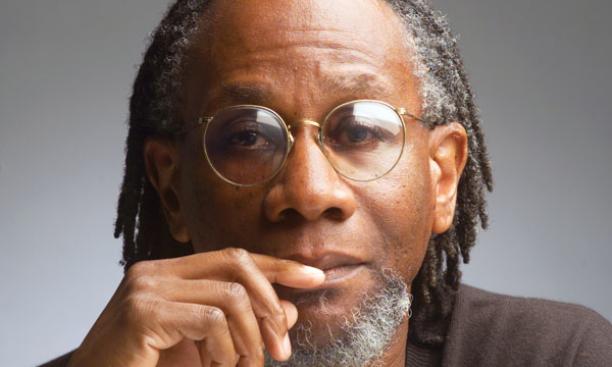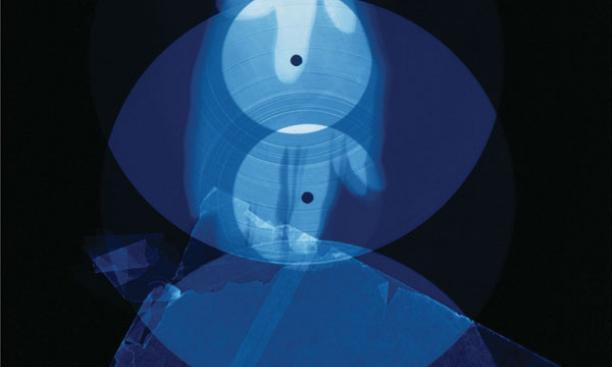

When Nathaniel Mackey ’69 began listening to jazz in the early 1960s, he found his way to albums by Miles Davis and Duke Ellington that his older brothers brought home. Captivated, he continued listening to jazz greats like Ornette Coleman and John Coltrane, drawn in over and over by what he recalls as the “mysterious and spiritual” nature of jazz music. He remembers writing a short story as a teenager while listening to Ahmad Jamal’s rendition of Gershwin’s “But Not For Me.” Jazz
has continued to galvanize his work as a novelist and poet.
His new book, Bass Cathedral (New Directions), is the fourth part of a serial fiction set in Los Angeles in the early 1980s, called From a Broken Bottle Traces of Perfume Still Emanate. Like preceding volumes, Bass Cathedral consists of letters from a musician named N. to his correspondent, the Angel of Dust. In this latest installment, N. and his jazz ensemble, Molimo m’Atet, release their album, Orphic Bend. As the epistolary narrative unfolds, N. engages the Angel as an artist, collaborator, and confessor.

The plot reveals only a fraction of Mackey’s novel, however; his thick and referential imagery highlights his acuity with literary and jazz history. Mackey forsakes realism and linear narrative, which he realizes poses significant difficulties for readers — but he says, “I hope my work proposes analogous challenges and rewards.” A recent review in The New York Times lauds Bass Cathedral as “a virtuoso performance ... not simply writing about jazz, but writing as jazz.”
A professor of literature at the University of California at Santa Cruz, Mackey also hosts a radio show, Tanganyika Strut, on public radio, which highlights African sounds from all over the world. Mackey got his start in radio at Princeton as the host of his own jazz show on WPRB. An English major, he thrived in close proximity to New York City, frequenting its many jazz clubs. A chance meeting with poet Amiri Baraka in a Greenwich Village bookstore led to Mackey’s organizing a reading for Baraka at Princeton. Mackey went on to write his senior thesis on Baraka, whose poetry has been a formative influence on his own work. Baraka’s use of more experimental forms, and especially his engagement with musical influences, was especially critical for Mackey’s understanding of the relationship among writing, reading, and music.
As a poet, Mackey has immersed himself in experimental poetry and poetics, the subject of his dissertation at Stanford and the creative method for many of his acclaimed collections. In 2006, Splay Anthem, his most recent collection and the latest installment of two ongoing serial poems, received the National Book Award. In his poetry as well as in his fiction, the rhythms and history of jazz are consistent themes, as are myths and the African diaspora.
Throughout a career distinguished by its commitment to music and experimentation, Mackey works slowly, deliberately, and, in his words, “by accretion.” “Attention to method, manner, the how of things,” he says, “go hand in hand with a concern for the what of things, the way of things.” π
Jane Carr ’00 is a writer and graduate student in New York City.
